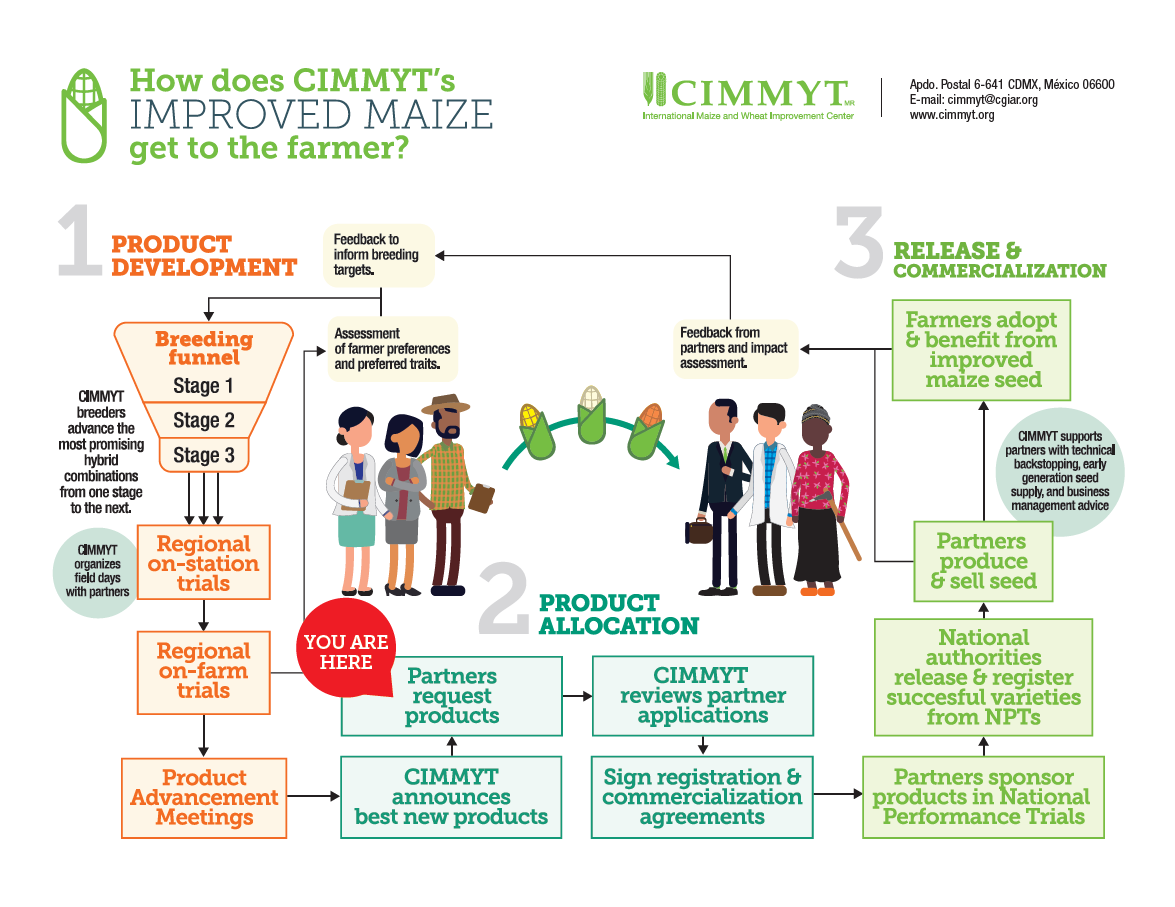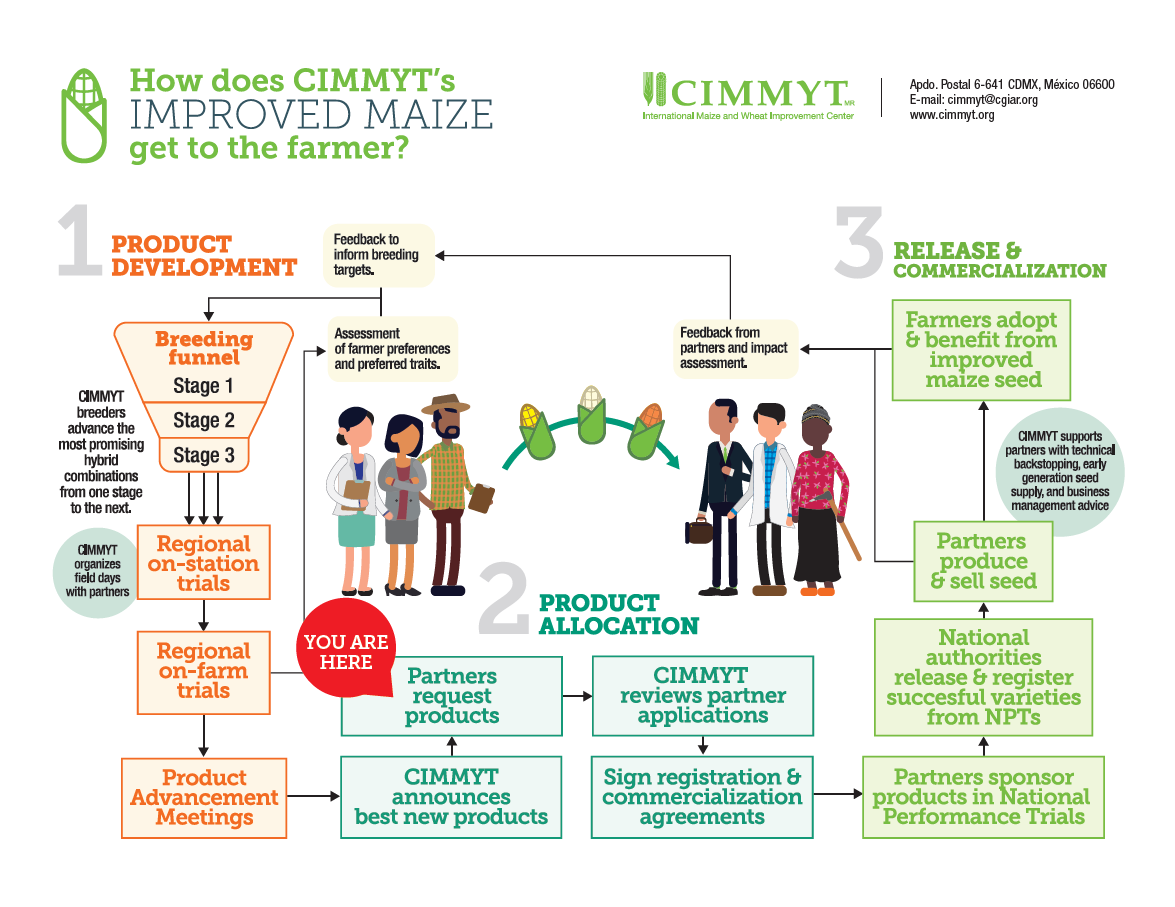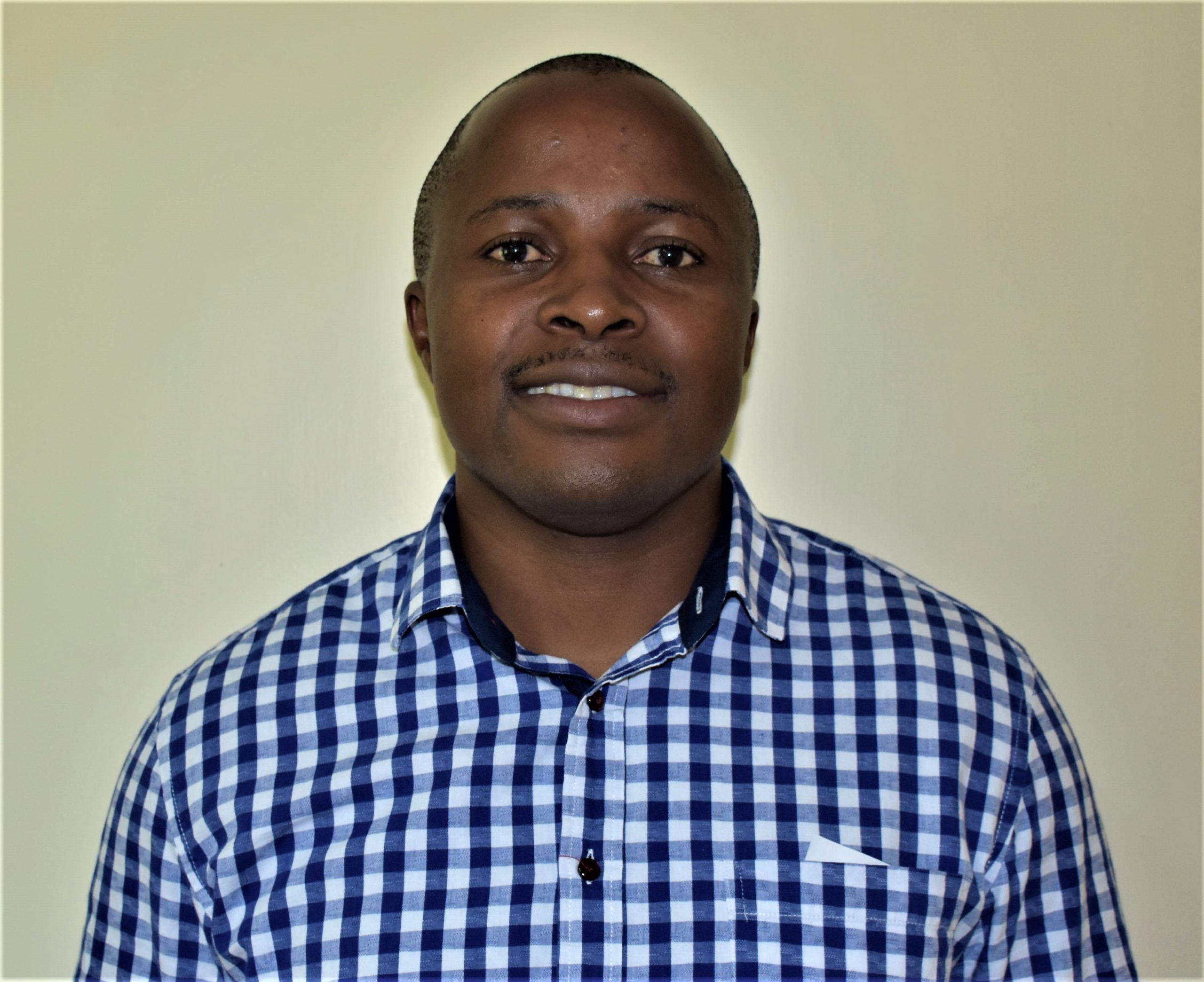Eight new CIMMYT maize hybrids available from Eastern Africa breeding program

CIMMYT is happy to announce eight new, improved tropical maize hybrids that are now available for uptake by public and private sector partners, especially those interested in marketing or disseminating hybrid maize seed across eastern Africa and similar agroecologies in other regions. NARES and seed companies are hereby invited to apply for licenses to pursue national release, scale-up seed production, and deliver these maize hybrids to farming communities.
| Newly available CIMMYT hybrids | Key traits |
| CIM22EAPP1-01-08 | Intermediate-maturing, white, high yielding, drought tolerant, NUE, and resistant to GLS, TLB, MSV, ear rots, and root & stalk lodging tolerance |
| CIM22EAPP1-01-16 | |
| CIM22EAPP1-02-02 | Early maturing, white, high yielding, drought tolerant, NUE, and resistant to MLN, MSV, GLS, TLB, ear rots, and root & stalk lodging tolerance |
| CIM22EAPP1-02-09 | |
| CIM22EAPP1-02-18 | |
| CIM22EAPP2-03 | Late maturing, white, high yielding, drought tolerant, NUE, and resistant to MSV, GLS, TLB, rust, ear rots, and root & stalk lodging tolerance |
| CIM22EAPP2-07 | |
| CIM21EAPP3-38 | Late-maturing, high-yielding, white-grain maize hybrid bred for the highlands, with resistance to GLS, TLB, rust, ear rots, and root & stalk lodging tolerance |
| Performance data | Download CIMMYT Eastern Africa Maize Regional On-Station (Stage 4) and On-Farm (Stage 5) Trials: Results of the 2022 to 2023 Seasons and Product Announcement from Dataverse. |
| How to apply | Visit CIMMYT’s maize product allocation page for details. |
| Application deadline | The deadline to submit applications to be considered during the first round of allocations is 15 May 2024. Applications received after that deadline are still welcome but will be considered during subsequent rounds of product allocations. |
The newly available CIMMYT maize hybrids were identified through rigorous, years-long trialing and a stage-gate advancement process which culminated in the 2023 Eastern Africa Regional On-Farm Trials. The products were found to meet the stringent performance and farmer acceptance criteria for CIMMYT’s breeding pipelines that are designed to generate products tailored in particular for smallholder farmers in stress-prone agroecologies of eastern Africa.
Applications must be accompanied by a proposed commercialization plan for each product being requested. Applications may be submitted online via the CIMMYT Maize Licensing Portal and will be reviewed in accordance with CIMMYT’s Principles and Procedures for Acquisition and use of CIMMYT maize hybrids and OPVs for commercialization. Specific questions or issues faced with regard to the application process may be addressed to GMP-CIMMYT@cgiar.org with attention to Nicholas Davis, program manager, Global Maize Program, CIMMYT.


